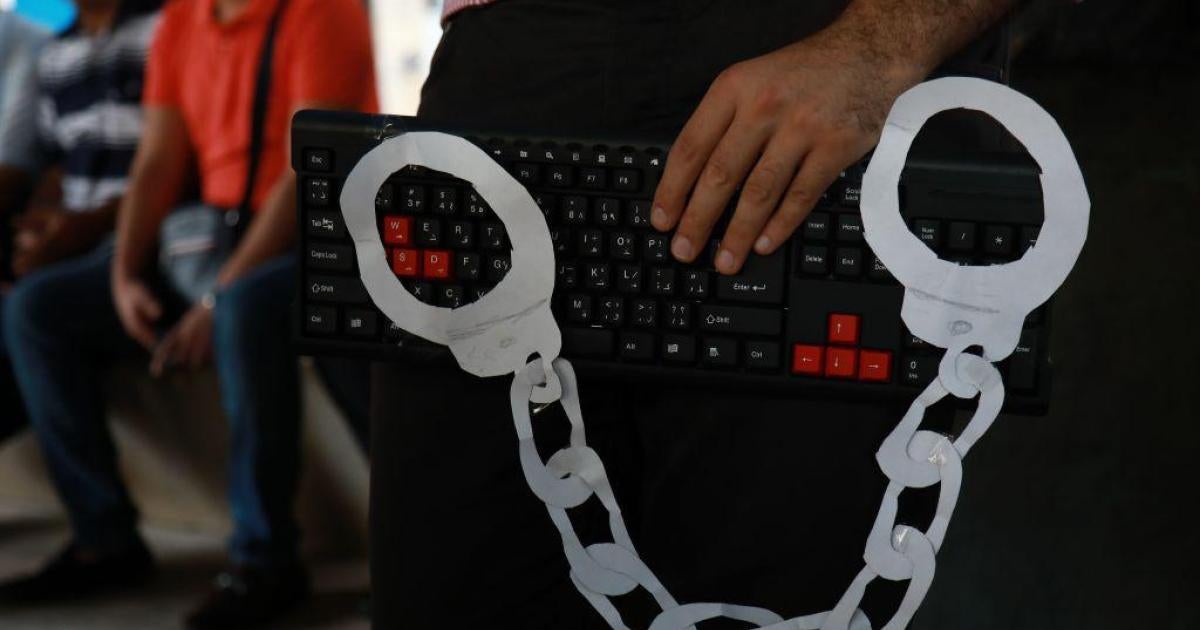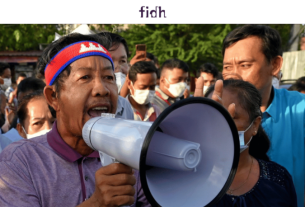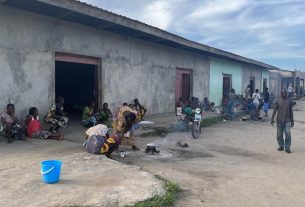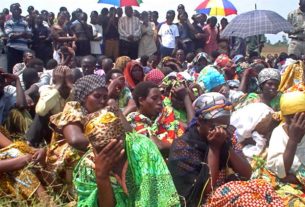(Beirut) – The Lebanese government on January 8, 2025 unlawfully deported Abdulrahman Youssef al-Qardawi, an Egyptian-Turkish poet, to the United Arab Emirates (UAE), where he faces a near-certain unfair trial and serious risks of other abuses including torture, Human Rights Watch said today.
Lebanese authorities initially arrested al-Qardawi on December 28, 2024 at the Masnaa border crossing upon his return from a visit to Syria based on a provisional arrest request made by Egypt, his lawyer Mohammed Sablouh told Human Rights Watch. Sablouh said that on December 30, an additional arrest request was made by the UAE. The Lebanese government said in its decision that the UAE, on January 2, requested al-Qardawi’s extradition, citing charges against him that included spreading fake news and rumors, disturbing public security, and spreading information that seeks to disturb public order. Sablouh said the UAE’s arrest request stems from a social media post during al-Qardawi’s visit to Syria. Human Rights Watch reviewed the post in question and found that it did not constitute recognizable offenses under international law.
“Arbitrarily deporting a poet to the UAE merely for peaceful social media criticism seriously undermines the rule of law in Lebanon,” said Ramzi Kaiss, Lebanon researcher at Human Rights Watch. “The decision to deport someone for criticizing another government sends the message that Lebanese authorities will tolerate all manner of abuses to kowtow to powerful Gulf countries even without evidence of a crime.”
Al-Qardawi is not a citizen of the UAE nor was he in the UAE when he committed any of the offenses he is accused of. Sablouh said he appealed the government’s deportation decision to the State Shura Council, Lebanon’s top administrative court, on January 8, one day after the government announced its decision to deport al-Qardawi. However, the government did not wait to hear the appeal and al-Qardawi was subsequently deported on January 8.
Sablouh said that al-Qardawi visited Syria after the overthrow of former president Bashar al-Assad, and that while in Syria he circulated a video of himself in Damascus’s Umayyad Mosque, in which he criticized the governments of Egypt, the UAE, and Saudi Arabia. He said that Egypt made a separate arrest request based on a three-year prison sentence issued against al-Qardawi in absentia for “spreading fake news” and “insulting judicial authorities.”
On January 3, Sablouh sent a letter to the Public Prosecutor’s Office requesting that it recommend to the government not to extradite al-Qardawi to the UAE or to Egypt, explaining the serious abuses that al-Qardawi would face in either countries. That same day, the Public Prosecutor’s Office recommended approving the extradition request, the government decision said. On January 7, 17 Lebanese and international rights organizations, including Human Rights Watch, sent a letter to the Lebanese government urging officials to reject the extradition requests by Egypt and the UAE.
Deporting al-Qardawi to the UAE violates Lebanon’s domestic laws and its international obligations, including under the international Convention against Torture and Other Cruel, Inhuman or Degrading Treatment or Punishment, which Lebanon has ratified, Human Rights Watch said. Article 34 of Lebanon’s Penal Code states that extradition requests should be rejected when they arise “from crimes of a political nature, or that appear to be for a political purpose”. Article 3 of the Convention against Torture, states that “no State Party shall expel, return (‘refouler’) or extradite a person to another State where there are substantial grounds for believing that he would be in danger of being subjected to torture.”
Over the last decade, Emirati authorities have carried out a sustained assault on human rights by enacting repressive laws and policies and unlawfully detaining human rights defenders, activists, political dissidents, and other perceived critics. Scores of them are serving lengthy sentences in UAE prisons following unfair trials on vague and broad charges that violate their rights to free expression and association.
In 2024, Emirati authorities held the second-largest unfair mass trial in the country’s recent history. It raised due process concerns including restricted access to case material and information, limited legal assistance, judges directing witness testimony, violations of the principle of double jeopardy, credible allegations of serious abuse and ill-treatment, and hearings shrouded in secrecy. Many defendants were held in prolonged solitary confinement, which may amount to torture. Critics like al-Qardawi face similar risks of fair trial and due process violations in the UAE.
The Lebanese government’s decision said that the UAE committed to providing al-Qardawi with a “fair and human treatment” during a phone call on January 7 between the UAE Minister of Foreign Affairs, Abdullah bin Zayed al-Nahyan, and Lebanon’s Prime Minister, Najib Mikati.
Verbal assurances of fair treatment cannot counterbalance the UAE’s record of unfair trials, torture, and ill-treatment, Human Rights Watch said. The UAE’s crackdown on free expression has extended to non-Emiratis in the UAE and Emirati authorities have also been linked to the forced extradition of perceived dissidents. In May 2023, Jordanian authorities detained a dual Emirati-Turkish citizen, Khalaf Abdul Rahman al-Romaithi, and extradited him back to the UAE, where he was forcibly disappeared. Al-Romaithi was later included in an unfair mass trial marred by due process violations, ill-treatment, and torture.
A deportation to Egypt would have carried similar risks. Human Rights Watch and Amnesty International have documented that the 2014 case in which an Egyptian court sentenced al-Qardawi to three years in prison in absentia based on charges of “insulting the judiciary” and “spreading false news” stemmed solely from his peaceful criticism.
Since 2013, the government of President Abdel Fattah al-Sisi in Egypt has detained and prosecuted tens of thousands of actual or perceived dissidents in prosecutions that severely violate international due process standards, as part of a relentless nationwide crackdown on all forms of dissent, including journalists, bloggers, protestors, political and human rights activists. Courts have issued numerous death sentences following unfair mass trials which, in many cases examined, lack basic fair trial guarantees and fail to present evidence to prove individual criminal responsibility.
Egypt’s prisons are notorious for inhumane detention conditions. Large numbers of deaths in custody have been documented due to medical negligence, overcrowding, and torture. In recent years, the United Nations Committee Against Torture and Human Rights Watch have documented the systematic use of torture by the Egyptian police and National Security officers.
“The Lebanese government has committed a grave injustice by issuing and enacting the deportation order against al-Qardawi,” Kaiss said.



